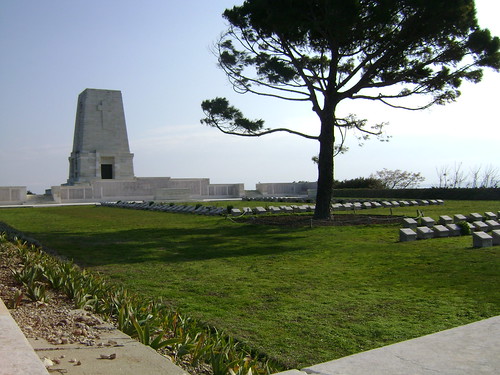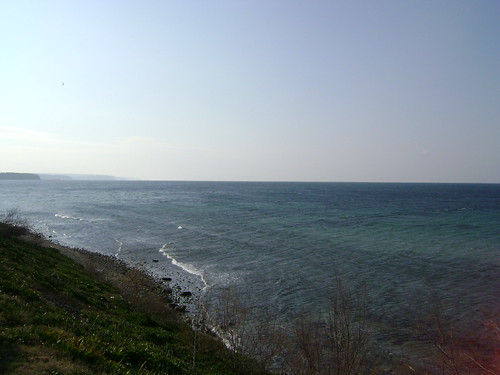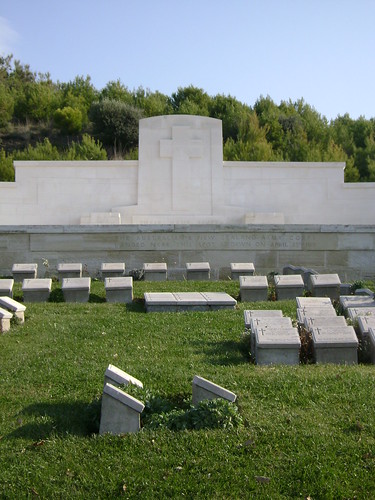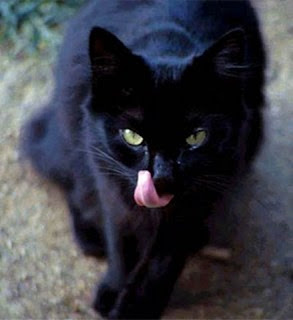|
|
Post by Jazz on Aug 23, 2009 7:33:49 GMT
A few years ago I spent the day in Gallipoli, Turkey, by chance. It was one of the most moving days of my life. Please, listen to this song by John McDermott as you read, perhaps the most powerful war (anti-war?) song that I have ever heard, I had seen the film with Mel Gibson (Gallipoli) and read of the terrible days when so many young Australians were slaughtered, but it meant nothing until I was there. We stood on the cliffs and looked down. We thought of the young men ordered to attack from commanders 'out of sight.' It could only be a massacre, and it was. The Turks had strong defenses on the hills. This isn't a good photo and does not show the utter hopelessness of the attack,  three old photos...   the Turk soldiers,  These are the trenches of the Turks, very well preserved... s621.photobucket.com/albums/tt294/lapeinture/Turkey99%20%20Gallipoli/?action=view¤t=img348.jpg 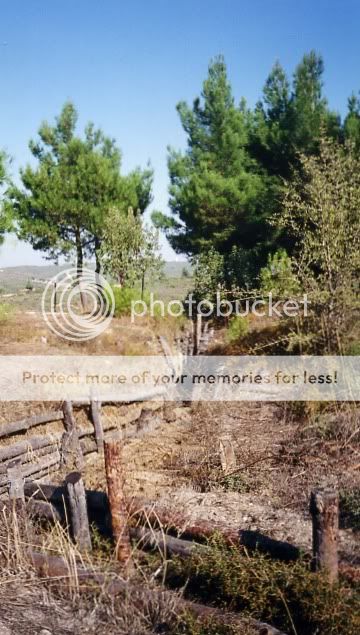   The Turkish government has shown great respect for the fallen Anzac soldiers. There is a small cemetary and a museum. I cried that day, as did everyone else. It was all a total waste. The cemetary is calm and beautiful, near the ocean...    The museum in honour of the fallen, all of of the fallen, Anzac and Turkish, is beautiful,      and, many years later...  the above says, "Those heroes that shed their blood
and lost their lives...
You are now living in the soil of a friendly country
therefore, rest in peace.
There is no difference between the Johnnies
and the Mehmets, to us where they lie side by side,
here in this country of ours...
you, the mothers
who sent them from far away countries
wipe away your tears.
Your sons are now living in our bosom
and are now in peace.
After having lost their lives on our land , they have become our sons as well."
Ataturk, 1934. |
|
|
|
Post by Deleted on Aug 23, 2009 10:53:49 GMT
That is really nice, Jazz. I have to confess that just about all I know about Gallipoli is what I saw in the Peter Weir movie.
However, there was a fascinating story in the newspaper not long ago about the first Australian soldier to die in France, after having come there from Gallipoli.
His name was William Gravell and he died on June 30th, 1916 at the age of 29 while peeing out of a train. The trains carrying the troops from Marseille only stopped once every 24 hours, and the soldiers had to manage to "do their business" as best they could in the meantime. Nobody knows if he lost his balance or leaned out and his head hit a sign, but his body was found in Mussy-sur-Dun, and that's where he was buried.
Although the death was duly recorded by the military authorities and the local French authorities, the fact that a war was going on made people lose track of the details. The Australians considered that he had died in an unknown place, and his name was inscribed on the memorial at Villiers-Bretenneux (near Amiens) with 10,884 other names of soldiers with unknown graves.
89 years after his death, 4 residents of Mussy were preparing an exhibition about WW1. The village of 370 inhabitants had put flowers on the tomb every year on November 11th, but they were surprised that nobody took care of the tomb, especially with the Anglo-Saxon reputation of taking good care of their war dead.
In 2006, a local teacher contacted the Australian War Memorial commission and asked about the tomb. But the soldier was listed as lost in combat on the records, and it took a long time to convince them. The tomb was finally authentified and on 6 February 2007, a new tomb was inaugurated for William Gravell and the village now has a tiny bit of Australian territory in its cemetery with a lovely plaque.
Australian sent the incredible number of 333 000, soldiers, all volunteers to fight the war in 1914. It had 61,000 deand and 159,000 wounded, the most military deaths of any nationality per capita (European countries of course had plenty of civilian deaths as well.) The British used them as cannon fodder on the battlefield, and sent them to be slaughtered before the English troops.
Almost all of William Gravell's train companions died in Fromelles a few weeks later, and that's probably where he would have died if he had not fallen from the train. Last year, they were still digging up human remains in Fromelles.
(Sorry -- didn't mean to threadjack, but I am afraid that the enormous contribution that Australia made in Europe during WW1 has been almost completely forgotten over the years.)
|
|
|
|
Post by bixaorellana on Aug 23, 2009 17:23:24 GMT
Oh Jazz -- there is something about your pictures of the trenches in that peaceful countryside that suddenly grabbed me and forcefully brought home the tragedy and waste of war. This is a most profound essay -- thank you.
Kerouac's post is constantly needed reminder that war dead statistics are made up of individuals, every mother's son, as it were.
|
|
|
|
Post by imec on Aug 24, 2009 2:58:24 GMT
This is really, really moving. Thank you Jazz.
|
|
|
|
Post by Deleted on Aug 24, 2009 15:28:55 GMT
Jazz, the poem says it all; just how useless war really is.
|
|
|
|
Post by nic on Sept 9, 2009 4:39:40 GMT
The Gallipoli Campaign is a paragraph in length in US history books, if it's mentioned at all. On our way back from Libyssa -- where Hannibal committed suicide -- we made our way down to the Dardanelles in the company of a few Kiwis, an Aussie, and a Brit. Here's a few pictures to hopefully compliment Jazz's.   The site of the 5th Army's cemetery.   |
|
|
|
Post by nic on Sept 9, 2009 5:02:23 GMT
Looking down on some of the graves of the 300,000 Turkish dead.  The view from The Nek. 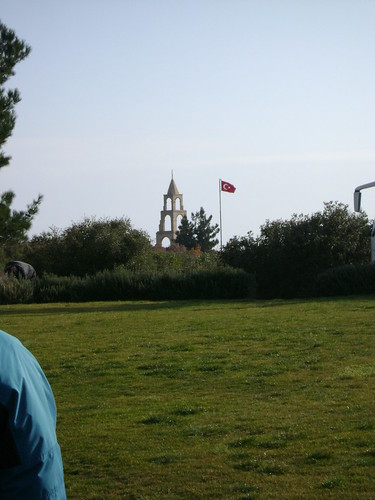 The Nek is about twenty yards long. Anzac soldiers lept out of their trenches and ran face first into Turkish machine gun fire; none made it across. This memorial, and a few grave stones, are the only markers.  In some cases they can only guess who's buried where.  |
|
|
|
Post by nic on Sept 9, 2009 5:18:50 GMT
|
|
|
|
Post by nic on Sept 9, 2009 5:31:27 GMT
|
|
|
|
Post by Jazz on Nov 12, 2018 21:44:37 GMT
Remembrance Day, 2018.
I still feel that John McDermott's song, 'And The Band played Waltzing Matilda" may be one of the most powerful antiwar songs ever sung. The first post (with the song) in this thread on longer works, so I'm posting it again. It needs to be listened to from beginning to end. Perhaps not the clearest rendition, but John McDermott sings it beautifully. Unforgettable. In honor of all those men and women who fight to protect our way of life. Thank you.
|
|
|
|
Post by mickthecactus on Nov 13, 2018 10:57:16 GMT
That was extremely moving Jazz. Thank you for reviving this thread.
|
|
|
|
Post by onlyMark on Nov 13, 2018 13:08:23 GMT
I wonder what I was doing in August 2009 that meant I missed this. Thanks Jazz.
I used to take groups to Gallipoli and we always had a Turkish guide, never the same one twice though. But invariably they had nothing but respectful words for the opposing forces and as I found out later when discovering more about the place, that they showed virtually no bias in what they said. They told of the events as they were without colouring them from one perspective as though understanding the stupidity of the attack and the whole war.
Also invariably, the big tough Antipodean males were always in tears by the end. No problem with that though.
|
|
|
|
Post by lagatta on Nov 13, 2018 16:32:39 GMT
Jazz, so glad to see you again!
Of course in Canada there are similar thoughts about the rout at Dieppe (being used as cannon fodder), in the Second World War.
|
|
|
|
Post by Jazz on Nov 15, 2018 2:15:51 GMT
Thanks guys. I feel oddly happy that you listened. It's been 20 years since my month in Turkey and the day we visited Gallipoli. Listening to the song, looking at my muddy photos and still, I cry. I will never forget it.
Mick, thank you for listening.
Mark, you probably understand this all far more than me. Not surprised you missed it first go round, your life is so very busy. Loved the thread of your Spanish home!
Lagatta, hello my friend! Yes, sad memories of Dieppe. Will write.
|
|
















































